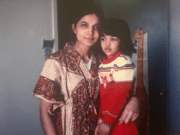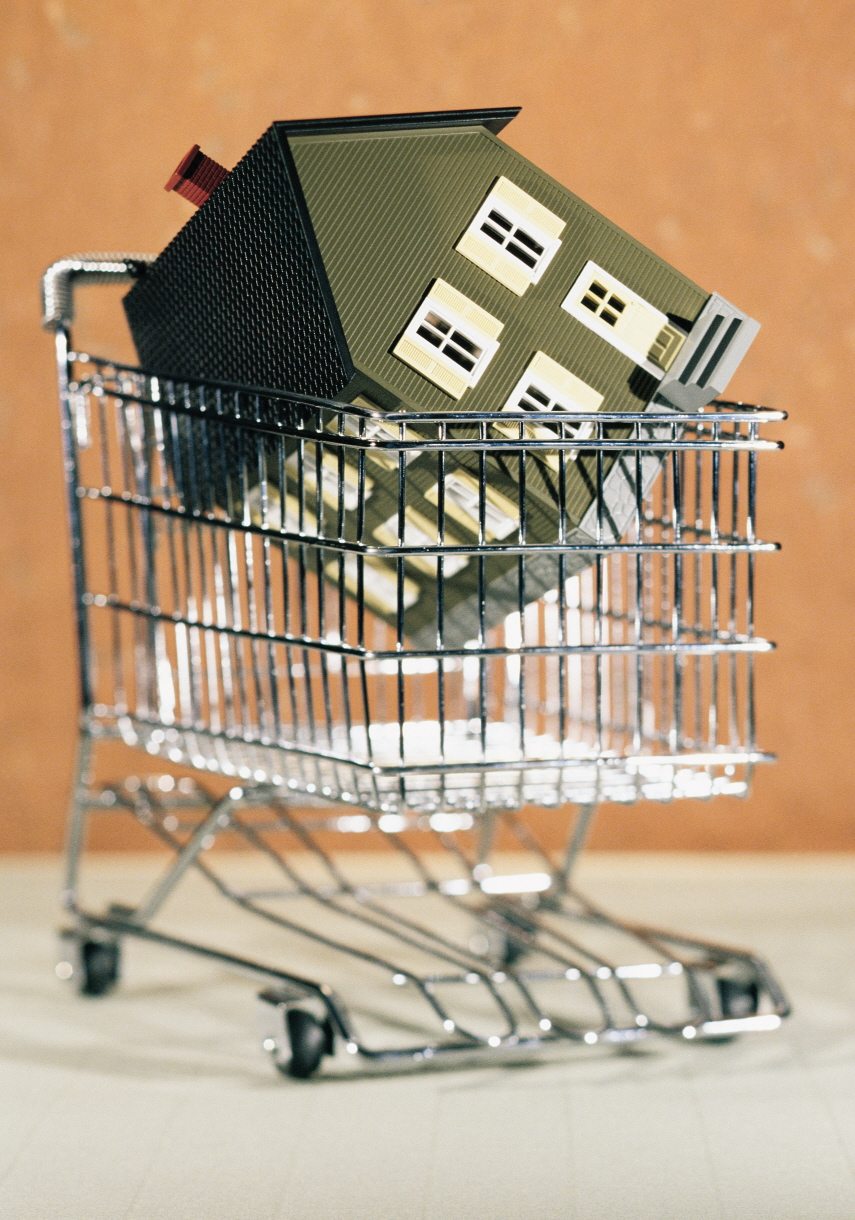Looking for a first home can be both an exciting and stressful adventure so we've put together a list for first home buyers to help them in their decision making. Take a look at the below and ask yourself:
1. How much can you afford?
Banks and mortgage firms will always give you a tentative number derived from generic formulas. Crunch your numbers. Consider your overall expense including child care, retirement funds and your lifestyle.
Never go over board with what you can afford. Begin with a starter home with manageable monthly payments. You can always move up to a bigger home.
2. What kind do you like?
Do you want to live in a Condo, a town house, a semi-detached or a detached house. This may seem a simple choice considering the square foot area you get and the distance you have to travel everyday to your work place but, its always better to consider the added expense of buying a house with monthly maintenance fee that may vary a lot in a condominium to a town house. Determine beforehand whether you want to go in a house with maintain fee or a free hold.
A monthly maintenance fee is collected against services like maintaining your front yard, roof and snow shoveling from your side walks; which incase of a free hold is your responsibility.
Also create a list of features that are a must- have suitable to your lifestyle and the ones you can compromise on. This will help you with a much more refined search.
3. Aim to pay more down payment
Your down payment should be at least 5 per cent of the price, but it is highly recommended that all first time home buyer aim to put down 20 per cent of the value of the home in order to qualify for a conventional mortgage. For our Canadian friends remember if you have money in your RRSPs/401K, you can use up to $25,000 towards the purchase of your first home.
It may seem a big number at the time of buying but paying a 20% down payment will ensure less mortgage resulting in lesser EMI (Equated monthly Instalment) towards your mortgage. The $200-$300 saving may make up for your additional transit cost.
4. Consider your closing costs
Closing costs can range anywhere from 1.5 to 3.5 per cent of the total cost of your home. You might be expected to pay for some or all of the following:
• Home inspection fee
• Legal fees
• Property transfer tax
• Appraisal fee
• Land transfer tax
• Title insurance
• Interest adjustment
• Property and fire insurance
5. Get pre-approved for your mortgage
After you have decided on your budget, closing cost and wish list. Its time to contact a bank or a mortgage broker in order to get pre-approved for a mortgage.
This will establish you as a serious buyer and give you an additional edge at the time of an offer. In case of a multiple bidding, waving off financial condition will work in your favour.
6. Understand the different payment options
You can pay for your mortgage in a variety of ways, including monthly, bi-weekly, and weekly payment options. Paying off your mortgage sooner will save you thousands of dollars in interest costs, while a longer amortization period will reduce your regular payments and frees up cash in your budget. You can use this online mortgage calculator to help you decide what payment schedule is right for you.
Some mortgages also give you the ability to make extra lump sum payments, or the option to skip a payment. Make sure you understand what your options are and that you are comfortable with the terms.
7. Calculate your moving expenses
People often forget to consider their moving cost. You can collect quotes from different companies if you are hiring a moving company. In case you are going long distance, plan out ahead to make sure you arrive at your home with your movers.
8. Furnishing your new home
People often go overboard with selecting furniture and designing, even before they have moved in. Wait until you have closed the deal on your first home. Every home has different set of measurements and your furniture may not fit well into your new home.
It is important to take proper measurements of all your rooms before you order any furniture. The most recommended ways to design your home is to move in first and gradually add things to your design.
9. Buy with your head, not your heart
Its always tempting to go for a perfect looking high- end home. Think logically and realistically with the biggest purchase of your life. Letting your emotions overtake common sense might result in paying more for your home either at the point of sale, or over the long run and you might never recuperate your losses.
10. Once you find your home, stop looking
Once you have decide on a property, stop looking and comparing it to all the other properties on market. Its the golden rule. Once you have it try and make it your own space.
Feature Image: www.bendhomesandproperties.com
Agreement, Amortization, Anokhi Blogs, Anokhi Media, Buyers, Buying, Calculate, Closing Cost, Conventional, Emi, Financial Conditioning, First Home Buyers, Furniture, House, Interest Rate, Monthly Cost, Mortgage, Options, Payments, Properties, Purchase, Real Estate, Retirement, Saving, Sellers, Value
COMMENTS
YOU MAY ALSO LIKE
-

Picnic Like A Pro: Easy South Asian BBQ Recipes To Wow Everyone
-

This Might Get Heated: The Ultimate Chai Ranking No One Asked For
-

The Ultimate Mother’s Day Gift Guide For Your Desi Mom
-

Ever Hosted A Desi Picnic? Here Is Your Ultimate Guide To Wowing Your Family & Friends
-

'Detective Aunty' & 9 Other Must-Read Spring 2025 Books By South Asian Authors
-

Beyond Samosas: Healthy & Satisfying Ramadan Suhoor And Iftar Recipes!
-

6 Ways South Asian Parents Can Teach Their Children About Black History Month
-

Rose Barfi, Chocolate Naan Khatai & More: South Asian Dessert Recipes For Valentine's Day
-

From Birth Charts To Lunar Calendars: Setting Intentions For 2025 With South Asian Traditions
-

How To Host The Perfect South Asian Holiday Dinner
-

ANOKHI's Holiday Gift Guide For Thoughtful Desi Presents For The Home & Beyond
-

Not Into Flu Shots? Try These Centuries-Old Desi Home Remedies Instead!
-

Diwali Gift Guide: Barbie® Diwali Doll & 8 More Unique South Asian Gift Ideas
-

From Turkey To Tadka: Desi-Inspired Thanksgiving Recipes
-

Mommy's Time-Out: How To Reclaim Your Zen After The Back-to-School Scramble
-

Khichdi Cups & 5 South Asian School Lunch Recipes For Busy Desi Parents
-

6 Complaints Desi Grandparents Have About Keeping Pets & How You Can Counter Them
-

Raksha Bandhan Gift Guide: Celebrate The Festival With A Modern Twist!
-

Summer Elixirs: Healthy South Asian Cooling Drink Recipes To Beat The Heat
-

Stay Cool: Build a Summer Garden Oasis At Home With Tulsi & Shade
-

Celebrating International Yoga Day: Find Your Balance Through Chakra Meditation
-

Spice Up Your Summer BBQ With These 5 Mouthwatering South Asian Recipes
-

South Asian Heritage Month: Journey Through Time With 8 Iconic South Asian Travel Destinations
-

How To Add Ancient South Asian Spiritual Cleansing Rituals To Modern Spring Cleaning Techniques
-

Toronto's Living Luxe Design Show Sets a New Standard for Luxury Exhibitions
-

Savouring South Asian Style: Elevate Your Home Decor with Cultural Flair
-

6 Ways To Create Fun Quality Time With Your Kids & Parents That Both Will Love!
-

Celebrating South Asian Literature: Must-Read Books by Female Authors
-

Flavourful Festivities: Traditional Holi Recipes To Spice Up Your Table
-

The Living Luxe Design Show Presented By JennAir Announces Powerhouse Program Of Speakers
-

7 Ways Yoga Will Save Your Mental Health
-

Ask Dr. Monica Vermani: How Can I Convince My Friend That Her Threatening Boyfriend Is The Problem, Not Me?
-

10 Tips To Manage & Survive Long-Distance Relationships
-

Ask Dr. Monica Vermani: I'm Afraid My Childhood Bully Will Be Back In My Life, What Do I Do?
-

Ask Dr. Monica Vermani: How Do I Create "Me Time" In My Demanding Life?
-

Hot Spot Alert: Mishree Cocktails & Cuisine Exhilarates With South Asian X Middle Eastern Cuisine
-

BioAro Founder Dr. Anmol Kapoor Wants You To Be The CEO Of Your Health
-

Savour the Holidays With This Paneer Pakora Recipe By KFI Sauces!
-

Here's How To Craft And Achieve Meaningful New Year's Resolutions
-

Snack It Up This Holiday Season with Indian-Inspired Potato Wedges by KFI Sauces
-

Butter Chicken Nachos Recipe By KFI Sauces Is Perfect For Your Holiday Spread
-

Ask Dr. Monica Vermani: How Do I Tell My Friend She's Taking My Emotional Support For Granted?
-

Anjali Pathak of Patak's Shares Her Favourite Recipes For The Holiday Season
-

Ask Dr. Monica Vermani: Why Does Our Family Get Togethers Always End With A Fight?
-

Ask Dr. Monica Vermani: How Do I Tell My Sis-In-Law To Stop Intruding In My Daughter's Wedding Plans?
-

Event Alert: The Auric Living Conference Brings Holistic Healing To Toronto
-

Ask Dr. Monica Vermani: I'm On The Outs With My Friend Because I Supported Her Breakup What Do I Do?
-

Event Alert: The Desai Foundation Rings In 10th Anniversary of "Diwali On The Hudson" Gala
-

South Asians & Arthritis: Busting Myths And Sharing Facts About This Disease In Our Community
-

Ask Dr. Monica Vermani: How Do I Convince My Kids That My Granddaughter's Best Friend Is A Bully?
-

Make Your Brunch Brilliant With This French Buckwheat Crepes & Dosas Recipe!
-

Ask Dr. Monica Vermani: How Do I Tell My Sis-In-Law That Her Messy Dog Is Not Welcome At My House?
-

You Just Need A Hot Pot To Make This Amazing Masala Style Vegan Tomato Soup
-

Ask Dr. Monica Vermani: How Do I Tell My Friend To Stop Interrupting Me?
-

Ask Dr. Monica Vermani: How Do I Trust My Husband After He Cheated On Me?
-

Check Out This Insane Recipe For Mini Masala Idli
-

Ask Dr. Monica Vermani: How Do I Tell My Brother That His Cottage Rules Ruins All The Fun?
-

Ask Dr. Monica Vermani: What Do I Do When My Fiancé Shares His Dog With His Ex?
-

Ask Dr. Monica Vermani: How Do I Convince My Partner That Our Six-Year-Old Is To Young For Sleepovers?
-

Ask Dr. Monica Vermani: How Do I Deal With My Friend Who Always Wants To Start A Fight?


















































